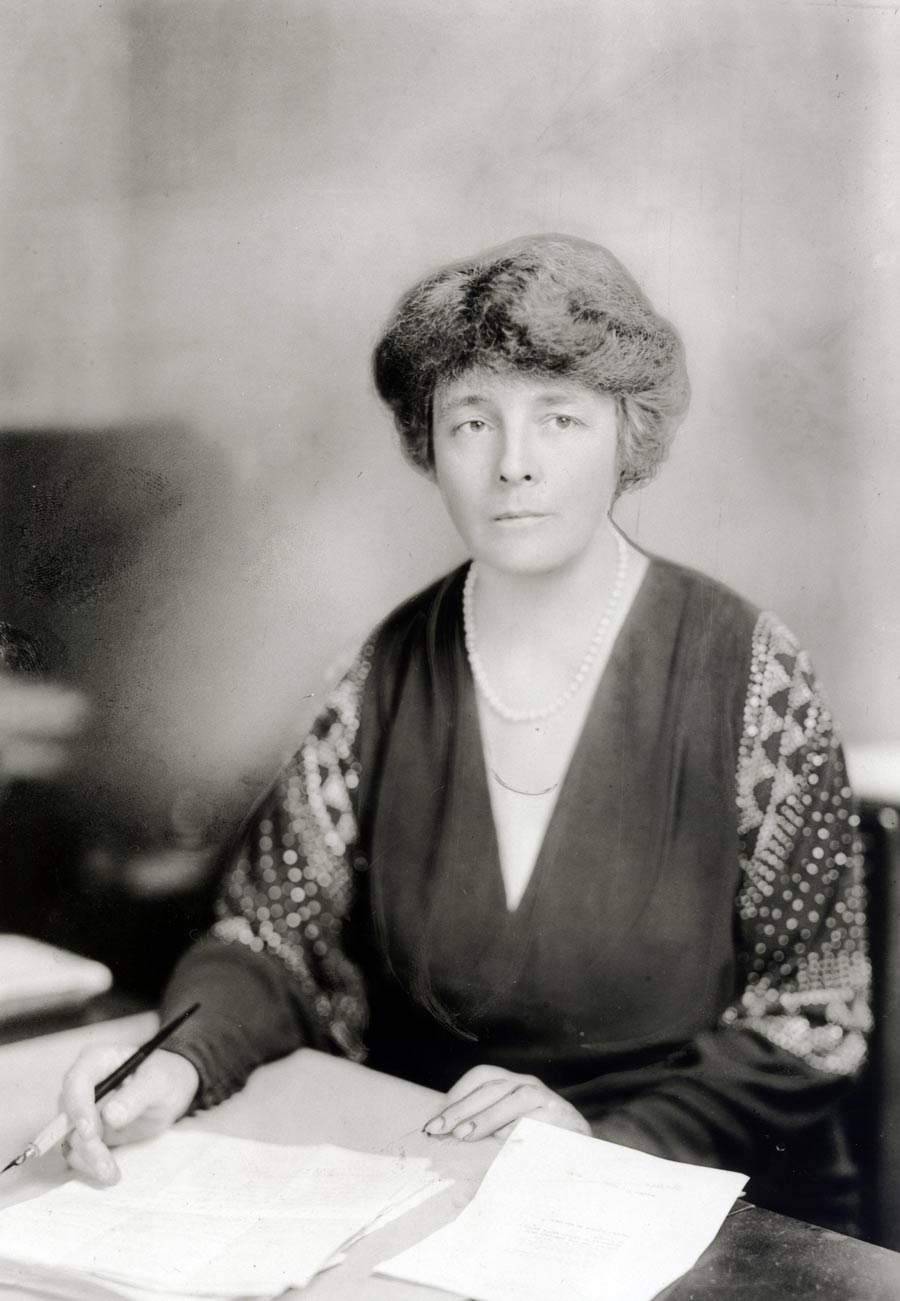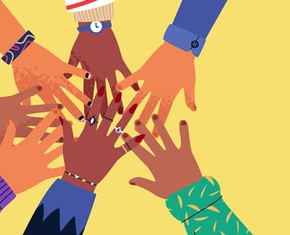The views expressed in our content reflect individual perspectives and do not represent the authoritative views of the Baha'i Faith.
1917. World War I. Men join the Army. Farmer’s fields go untended. Who will feed America?
In New Mexico Isabella Ferguson (nee Selmes) gathers others to help harvest a cornfield. She learns that other women across America have the same idea, gleaned from previous efforts in Great Britain. They form the Women’s Land Army. As men march off to war, women march into the fields. Isabella Ferguson joins her group to the national movement and heads up New Mexico’s contingent. They prepare the soil, drive the tractors, plant the seeds, tend the fields, harvest the crops. America eats.

Isabella Selmes Ferguson Greenway
During the war years, Isabella also volunteers with the Red Cross and organizes the New Mexico Women’s Auxiliary of the Council for Defense.
In a February 18, 1998, article, Valuing Spirituality in Development, the Baha’i International Community stated that “Moral leadership, the leadership of the future, will find its highest expression in service to others and to the community as a whole.” Isabella Selmes Ferguson Greenway King demonstrated such moral leadership long before that was written—as have many brave and resourceful women throughout human history.
In the post-war years, widowed, remarried, and relocated to Arizona, Isabella is disturbed by the difficulties returning soldiers have finding work. Already the owner of a cattle ranch, she decides to become a “social entrepreneur” by starting a different type of business. Isabella assembles a large supply of woodworking tools and opens The Arizona Hut, a firm dedicated to employing disabled veterans. They handcraft furniture, toys and miscellaneous novelty items. Stores nationwide carry their wares.
After The Arizona Hut runs into financial difficulties due to the 1929 stock market crash, she doesn’t fold up the business. Instead she opens another. Tucson’s Arizona Inn needs to be furnished. This helps keep the veterans employed and the Inn becomes a favorite destination for tourists to Arizona. It remains so to this day.
Widowed for a second time in 1926, the intrepid Isabella doesn’t sit home feeling sorry for herself. Instead, she seconds the nomination of Franklin Delano Roosevelt for President of the United States at his nominating convention. After this, talk abounds about her becoming Roosevelt’s Vice-Presidential running mate, as well as rumors that she may run for governor. She does neither, saying she needs to devote more time to her children. However, Isabella’s concern for others coupled with her can-do spirit, spurs the activist to give in. Instead of running for governor, she runs for congress in 1932. Winning her seat with over 70% of the vote, Isabella Greenway becomes Arizona’s first female congresswoman. She serves two terms, and even though she would have run unopposed for a third, she chooses to retire from political office.
Around this time, she purchases Gilpin Airlines, which then becomes Gilpin and Greenway Airlines, also known as G & G Airlines, with Isabella as owner/operator.
Her friendship with President Roosevelt fractures over her unabashed opposition to several of his efforts, especially the idea of anyone holding the office of President of the United States for more than two terms. However, the devoted friendship between Isabella and Eleanor Roosevelt, for whom she’d been a bridesmaid and a lifelong confidant, proves unbreakable.
Isabella’s first two husbands, Robert Ferguson and John Greenway, were both members of Teddy Roosevelt’s Rough Riders, the latter also a big name in the copper mining industry. The third, Harry Orland King, who she marries in 1938, had served as deputy administrator for the National Recovery Administration.
Her championing spirit can’t keep her at home for long. After the United States enters World War II, Isabella finds herself in Washington, D. C. as national chair of the American Women’s Voluntary Services. They set up emergency kitchens, sell war bonds, become fire fighters, ambulance and truck drivers, aircraft spotters, navigators, and aerial photographers, among many other services.
Isabella was not a Baha’i—but her life exemplified the Baha’i principle of love expressed in service to humanity, with all its various expressions:
… there is love for the family, for the country, for the race, there is political enthusiasm, there is also the love of community of interest in service. These are all ways and means of showing the power of love. Without any such means, love would be unseen, unheard, unfelt—altogether unexpressed, unmanifested! … So, it is necessary to have an instrument, a motive for love’s manifestation, an object, a mode of expression.
We must find a way of spreading love among the sons of humanity. – Abdu’l-Baha, Paris Talks, p. 35.
















Comments
Sign in or create an account
Continue with Googleor